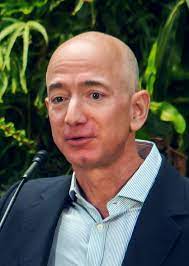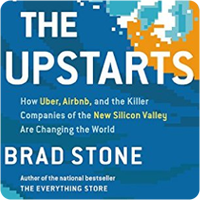Het arrangement The Upstarts v456 is gemaakt met Wikiwijs van Kennisnet. Wikiwijs is hét onderwijsplatform waar je leermiddelen zoekt, maakt en deelt.
- Auteur
- Laatst gewijzigd
- 11-05-2025 22:52:34
- Licentie
-
Dit lesmateriaal is gepubliceerd onder de Creative Commons Naamsvermelding-GelijkDelen 4.0 Internationale licentie. Dit houdt in dat je onder de voorwaarde van naamsvermelding en publicatie onder dezelfde licentie vrij bent om:
- het werk te delen - te kopiëren, te verspreiden en door te geven via elk medium of bestandsformaat
- het werk te bewerken - te remixen, te veranderen en afgeleide werken te maken
- voor alle doeleinden, inclusief commerciële doeleinden.
Meer informatie over de CC Naamsvermelding-GelijkDelen 4.0 Internationale licentie.
Aanvullende informatie over dit lesmateriaal
Van dit lesmateriaal is de volgende aanvullende informatie beschikbaar:
- Toelichting
- Deze les valt onder de arrangeerbare leerlijn van de Stercollectie voor Engels voor vwo, leerjaar 4, 5 en 6. Dit is thema 'Gig Economy'. Het onderwerp van deze les is: The Upstarts. In deze les gaat het over de gig economy, welke ook wel de 'Sharing economy' wordt genoemd. Aan bod komt het boek 'The upstarts', waar gesproken wordt over deze sharing economy en bedrijven die hieronder vallen.
- Leerniveau
- VWO 6; VWO 4; VWO 5;
- Leerinhoud en doelen
- Engels;
- Eindgebruiker
- leerling/student
- Moeilijkheidsgraad
- gemiddeld
- Studiebelasting
- 4 uur 0 minuten
- Trefwoorden
- arrangeerbaar, engels, gig economy, sharing economy, stercollectie, the upstarts, v456

 So far we’ve been talking about the Gig Economy. But it’s also sometimes called The Sharing Economy. How much sharing actually happens? And why has this term helped a lot of companies? Read on and find out.
So far we’ve been talking about the Gig Economy. But it’s also sometimes called The Sharing Economy. How much sharing actually happens? And why has this term helped a lot of companies? Read on and find out.









 Brad Stone: 'We should watch Uber and Airbnb closely'
Brad Stone: 'We should watch Uber and Airbnb closely'
 You are going to imagine that your class is going to have a debate.
You are going to imagine that your class is going to have a debate. What have you learnt in this period?
What have you learnt in this period?